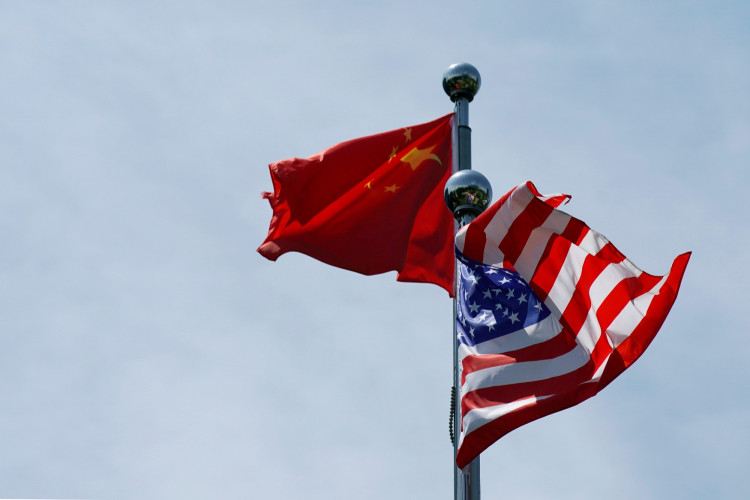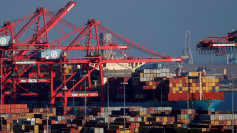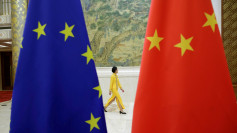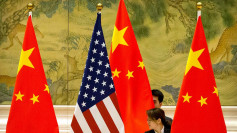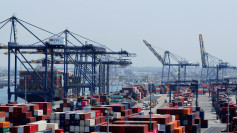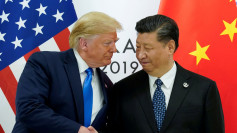China has escalated its response to U.S. arms sales to Taiwan by freezing the assets of nine American firms linked to military dealings, further intensifying tensions between the two global powers. On Wednesday, Beijing announced that companies such as Sierra Nevada Corporation, Cubic Corporation, and others would face sanctions, with their property and assets within China effectively frozen. This action underscores China's continued pressure on the U.S. to halt arms sales to Taiwan, which Beijing claims as part of its territory.
In a statement issued by China's Foreign Ministry, spokesperson Lin Jian urged the U.S. to "immediately stop the dangerous trend of arming Taiwan," adding that the U.S. should cease its support for Taiwan's independence. "Stop conniving and supporting Taiwan independence, and stop undermining peace and stability in the Taiwan Strait," Lin said during a regular press briefing. These new countermeasures mark a significant diplomatic move by China, as relations between Washington and Beijing have grown increasingly fraught over the issue of Taiwan's defense.
Taiwan, a democratically governed island with a population of 23.5 million, has long been a source of contention for China. While the U.S. does not officially recognize Taiwan as a sovereign state, it remains one of the island's most important international allies and a key provider of military support. U.S. weapons sales to Taiwan have been ongoing for decades, and under the Taiwan Relations Act, Washington is legally obligated to provide Taiwan with the means to defend itself. These sales have included advanced systems such as F-16 fighter jets, Abrams tanks, and various missile platforms, all designed to bolster Taiwan's defense capabilities in the face of increasing military threats from Beijing.
The companies named in the Chinese sanctions include major defense contractors that have longstanding ties with the U.S. military. In addition to Sierra Nevada and Cubic Corporation, the sanctions also apply to Stick Rudder Enterprises LLC, S3 Aerospace, TCOM Ltd Partnership, TextOre, Planate Management Group, ACT1 Federal, and Exovera. The Chinese Foreign Ministry made it clear that organizations and individuals within China are prohibited from engaging in any transactions with these firms, effectively cutting them off from doing business in one of the world's largest markets.
While China has repeatedly called on the U.S. to sever its military support for Taiwan, these demands have largely gone unheeded. U.S. arms sales to Taiwan have continued unabated, with both the Trump and Biden administrations maintaining that these sales are necessary to ensure the island's ability to defend itself. In response to the growing Chinese military presence in the Taiwan Strait and Beijing's increased threats to annex the island by force, Taiwan has not only continued to purchase U.S. weaponry but has also ramped up its domestic defense initiatives.
Taiwan's military strategy includes the development of a domestic arms industry, with efforts to build a fleet of submarines and extend mandatory military service for men to one year. These initiatives are aimed at enhancing the island's self-defense capabilities, but China's latest move to target U.S. firms may signal its willingness to take more aggressive steps to deter future military support for Taiwan.
While the U.S. has not yet commented directly on the sanctions, the move is likely to exacerbate an already tense relationship between Washington and Beijing. The two countries have been locked in a broader strategic rivalry, with disputes over trade, technology, and military dominance becoming increasingly prominent.
China's decision to freeze the assets of these companies also sends a message that it is prepared to use its economic leverage to push back against what it sees as U.S. interference in its internal affairs. Whether these measures will have a lasting impact on U.S. defense contractors or on the broader U.S.-China relationship remains to be seen, but the sanctions are likely to be viewed as a significant escalation in the ongoing struggle over Taiwan's future.
